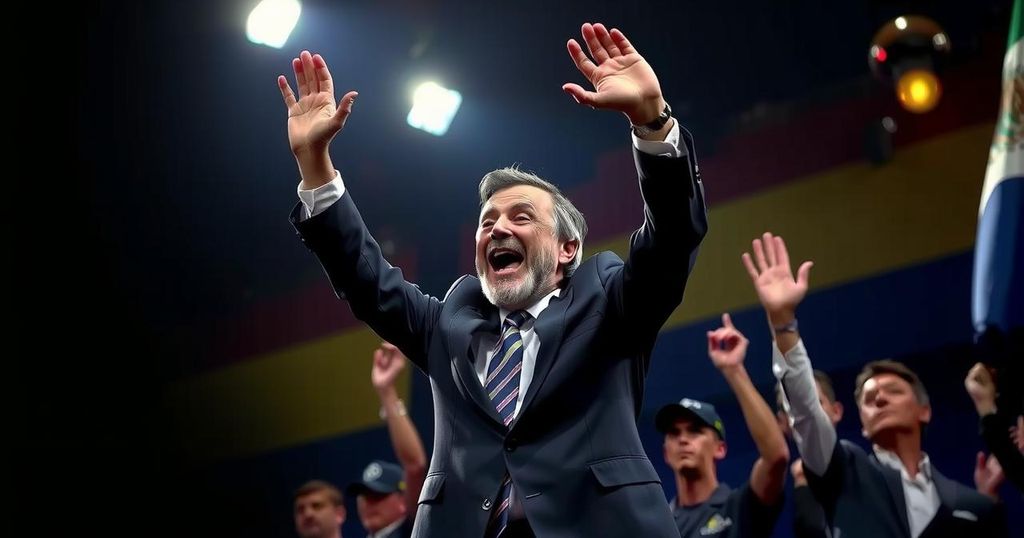Yamandú Orsi has won a tightly contested presidential runoff in Uruguay, defeating Álvaro Delgado. The election marks a political shift towards the left, reflecting growing public dissatisfaction with the current government’s economic policies. Orsi’s campaign focused on unity and moderate reform, reminiscent of past Broad Front governance. With high voter turnout, his victory signals a desire for change from the incumbents, amidst broader global trends of similar electoral shifts.
In a closely contested runoff election, Yamandú Orsi, representing the left-wing Broad Front coalition, triumphed over Álvaro Delgado of the center-right ruling coalition, marking a significant political shift in Uruguay. Orsi garnered over 49% of the votes compared to Delgado’s 46%, with voter turnout hitting an impressive 90%. Emphasizing national unity, Orsi acknowledged the narrow margin and expressed his commitment to work for all citizens. His moderate platform reflects a blending of market-friendly policies and social welfare initiatives reminiscent of the Broad Front’s previous successful tenure from 2005 to 2020. The election outcome is indicative of increasing public dissatisfaction with the current government’s handling of post-pandemic economic challenges, prompting a desire for change.
The recent election in Uruguay is set against a global backdrop of significant political transformations, particularly characterized by anti-incumbent sentiments in many nations. Yamandú Orsi’s victory signifies a departure from the incumbent right-wing policies, which have faced mounting criticism due to stagnating wages and rising crime rates. Historically, the Broad Front coalition, which Orsi represents, has implemented notable reforms during its past administration, and voters now seem eager for a return to those principles amidst ongoing economic woes resulting from the pandemic.
Yamandú Orsi’s electoral victory represents a critical turning point in Uruguayan politics, showcasing the electorate’s demand for change amid economic uncertainties. His moderate yet progressive agenda aims to balance growth with social welfare, offering hope to many citizens for improved conditions. As the nation anticipates Orsi’s administration, it is clear that the political landscape is shifting, reflecting broader trends of discontent with established governance. The upcoming presidency will begin on March 1, 2025.
Original Source: indianexpress.com






